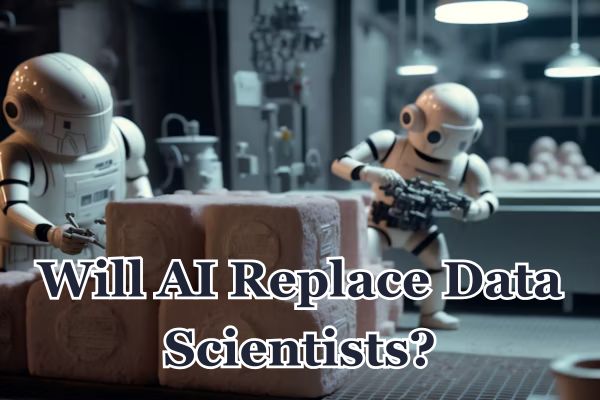The rise of Artificial Intelligence (AI) has sparked debates across industries, and one major question remains: Will AI replace data scientists? While AI automates many tasks, the role of a data scientist is complex, requiring creativity, problem-solving, and domain expertise. This article explores the impact of AI on data science, examining whether AI will complement or replace human data scientists.
Also See: 6 Domains of Ai: Artificial Intelligence’s Key Areas
Will Data Scientists Be Replaced by AI?
The Role of Data Scientists vs. AI Capabilities
To understand AI’s potential to replace data scientists, let’s compare their capabilities.
| Feature | Data Scientists | AI Systems |
|---|---|---|
| Data Processing | Cleans, preprocesses, and structures data | Automates data cleaning and transformation |
| Model Selection | Chooses appropriate models | Suggests or auto-selects models |
| Feature Engineering | Creates meaningful features from raw data | Automates feature selection & extraction |
| Interpretation | Analyzes results, identifies insights | Provides statistical explanations |
| Creativity & Strategy | Develops innovative solutions | Lacks creativity and domain-specific intuition |
| Ethical Considerations | Evaluates bias, fairness, and impact | Lacks moral reasoning |
AI is advancing rapidly in data analysis, model training, and automation. However, it still struggles with creativity, decision-making, and ethical considerations—areas where human intelligence is essential.
Also See: What is One Thing Current Generative AI Applications cannot Do?
How AI is Transforming Data Science
AI is not eliminating data scientists but reshaping their roles by automating repetitive tasks. Key AI advancements include:
- Automated Machine Learning (AutoML)
- AI-driven tools like Google AutoML and H2O.ai automate model selection and hyperparameter tuning.
- Example: AutoML reduces the time required for model training by up to 90%.
- Natural Language Processing (NLP) for Data Analysis
- AI-powered NLP models analyze text data at scale.
- Example: Chatbots and AI-driven insights tools like OpenAI’s GPT can process vast amounts of textual data quickly.
- AI-Powered Data Cleaning
- Tools like Trifacta and Dataprep automate the removal of inconsistencies in datasets.
- Example: Data scientists spend 60-80% of their time cleaning data—AI can cut this time in half.
- AI in Predictive Analytics
- AI predicts trends and patterns with minimal human intervention.
- Example: Netflix’s AI-driven recommendation system improves user engagement by over 80%.
Also See: Difference Between Propositional and First Order Logic
Will AI Replace Data Scientists? A Statistical View
To assess AI’s impact on data science jobs, let’s examine current trends:
| Year | AI in Data Science Market ($B) | Jobs in Data Science (Millions) |
| 2020 | 10.5 | 2.7 |
| 2023 | 22.1 | 3.6 |
| 2025 | 35.8 (Projected) | 4.2 (Projected) |
| 2030 | 65.3 (Projected) | 5.1 (Projected) |
Source: McKinsey & Gartner Reports
The demand for data scientists continues to grow despite AI advancements. AI is enhancing, not replacing, their work.
Why Data Scientists Will Remain Essential
- Strategic Decision-Making – AI lacks the ability to understand business objectives and interpret results beyond mathematical accuracy.
- Ethical Considerations – AI cannot evaluate societal impacts, data bias, or regulatory constraints.
- Creativity & Innovation – AI follows patterns but does not think outside the box or create novel approaches.
- Interdisciplinary Expertise – Data scientists apply domain knowledge to solve complex problems, which AI lacks.
Conclusion
While AI is automating many aspects of data science, it is unlikely to replace data scientists entirely. Instead, AI serves as a powerful tool, enhancing productivity and efficiency. Data scientists who adapt, upskill, and leverage AI-driven tools will remain in high demand. Rather than fearing replacement, data scientists should embrace AI as a collaborative force that enables greater innovation and problem-solving capabilities.
